
We used to think scams came in the form of dodgy emails with too many exclamation marks and a random prince offering you millions. Those days are gone.
Now, scammers have moved into your favorite hangout spots — TikTok, Instagram, WhatsApp, Facebook — and they’re blending in so well you might not notice them until it’s too late.
And here’s the scary part: people are spending more time on social media than ever. In 2024, the average person spends around 2 hours and 23 minutes a day scrolling, liking, and sharing. In some countries, that number jumps past 4 hours daily. More time online = more opportunities for scammers to slide into your feed or DMs.
Social media scams are no longer limited to simple phishing emails; they’ve evolved into a complex web of impersonation, financial manipulation, and psychological tactics — using the unique features of each platform to reach a wider audience.
Here are some of the scams making the rounds right now:
TikTok is all about quick, engaging content — which makes it perfect for scammers to hook you in seconds. One of the most dangerous schemes here is the pig butchering scam (named for the way scammers “fatten up” victims before the final hit).

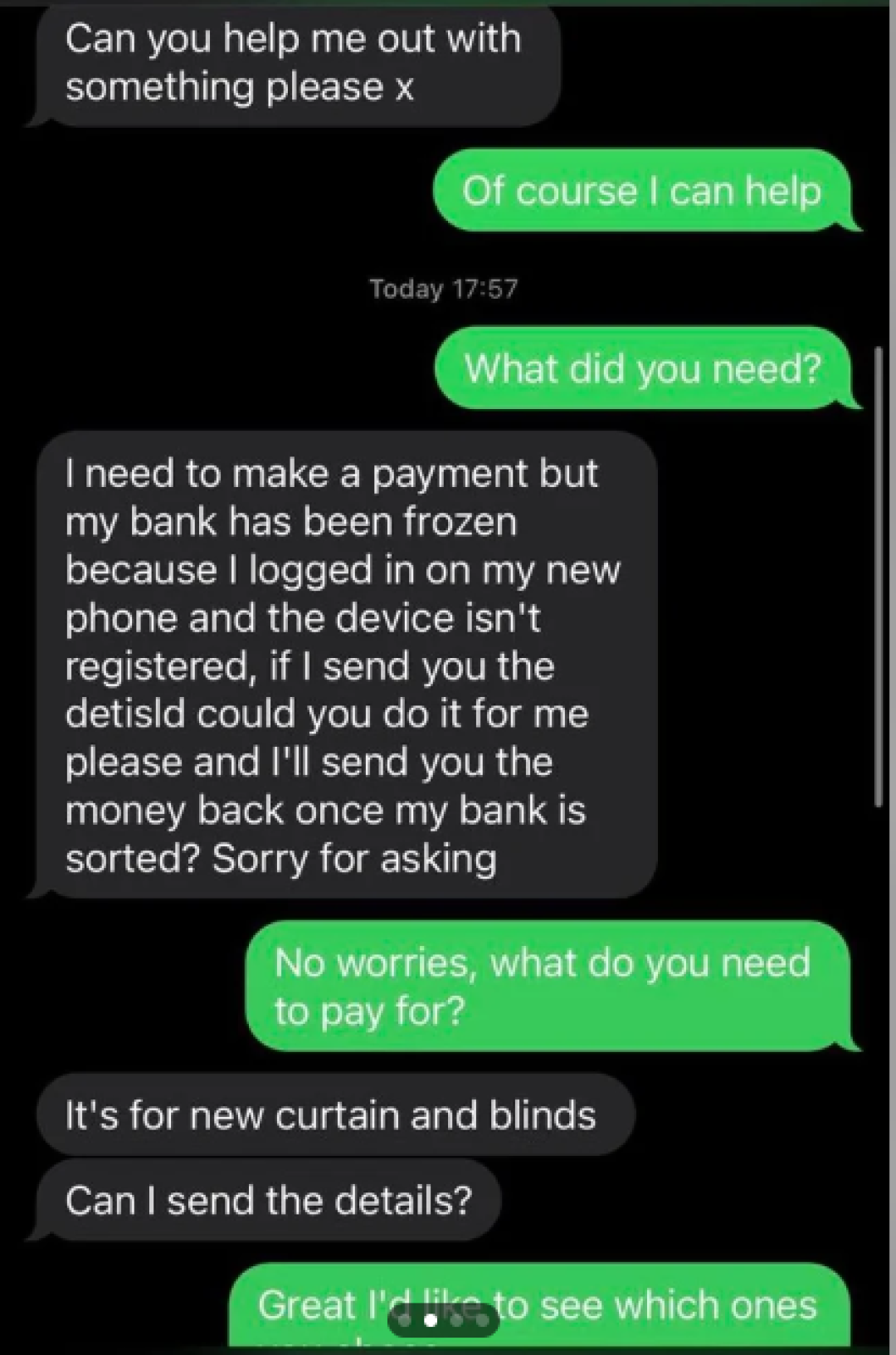
Source: Reddit
How it started

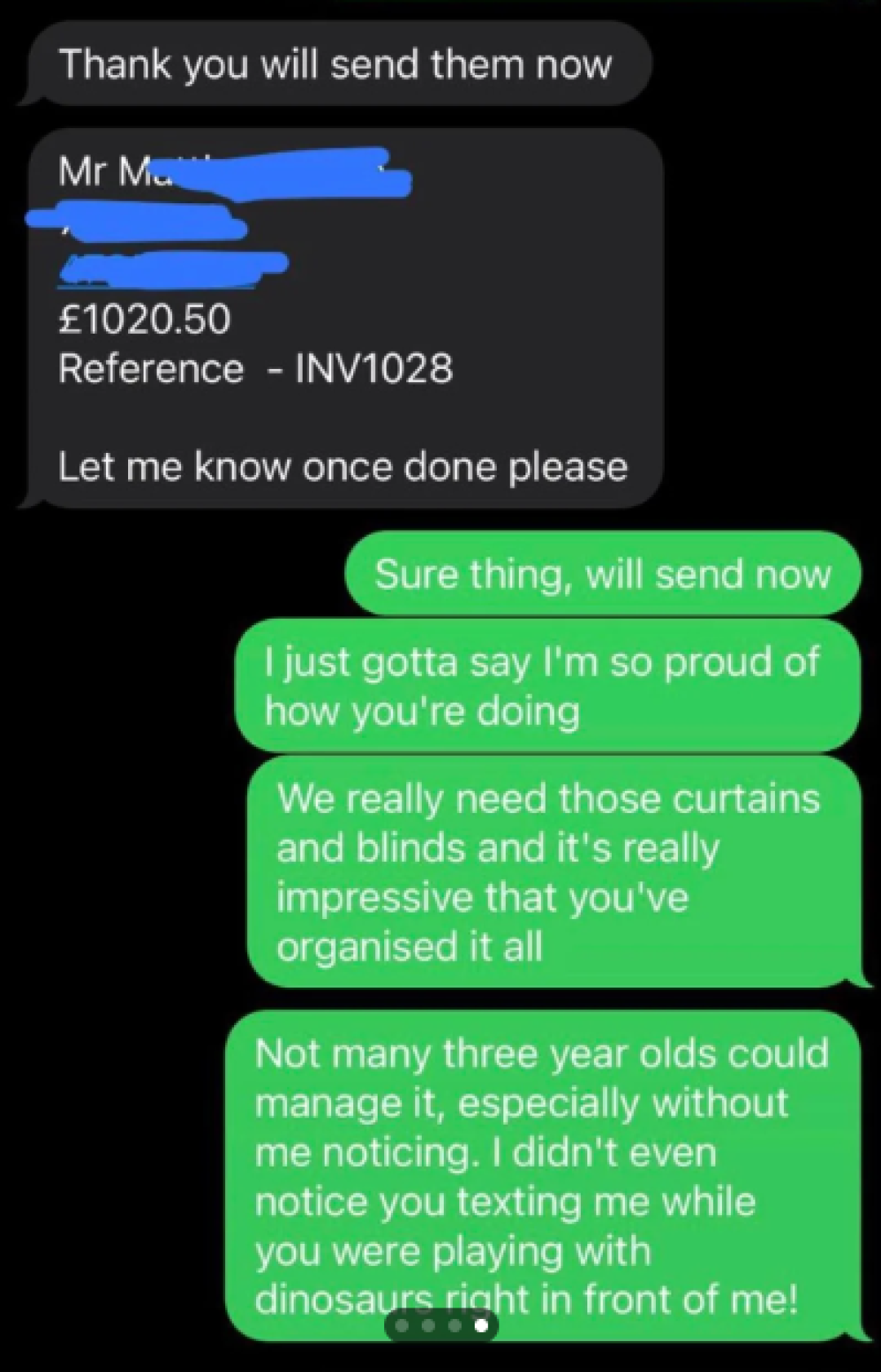
Source: Reddit
How it ended
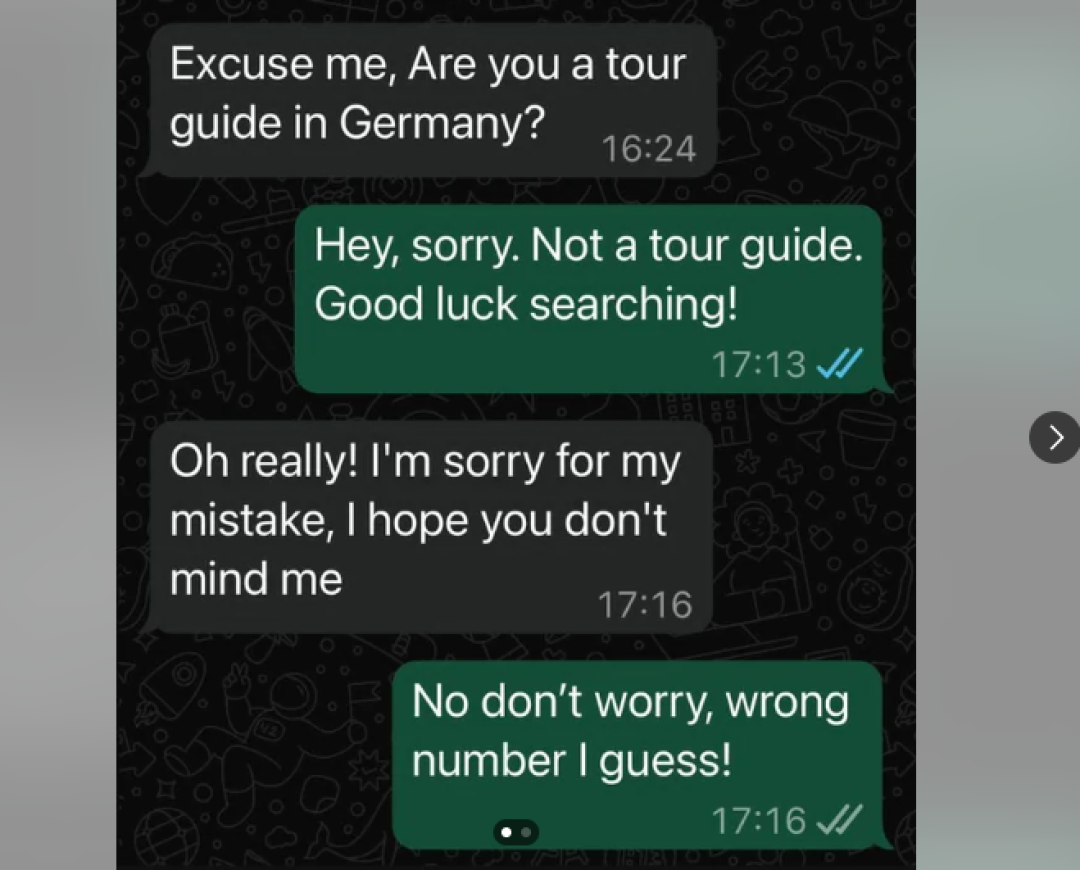
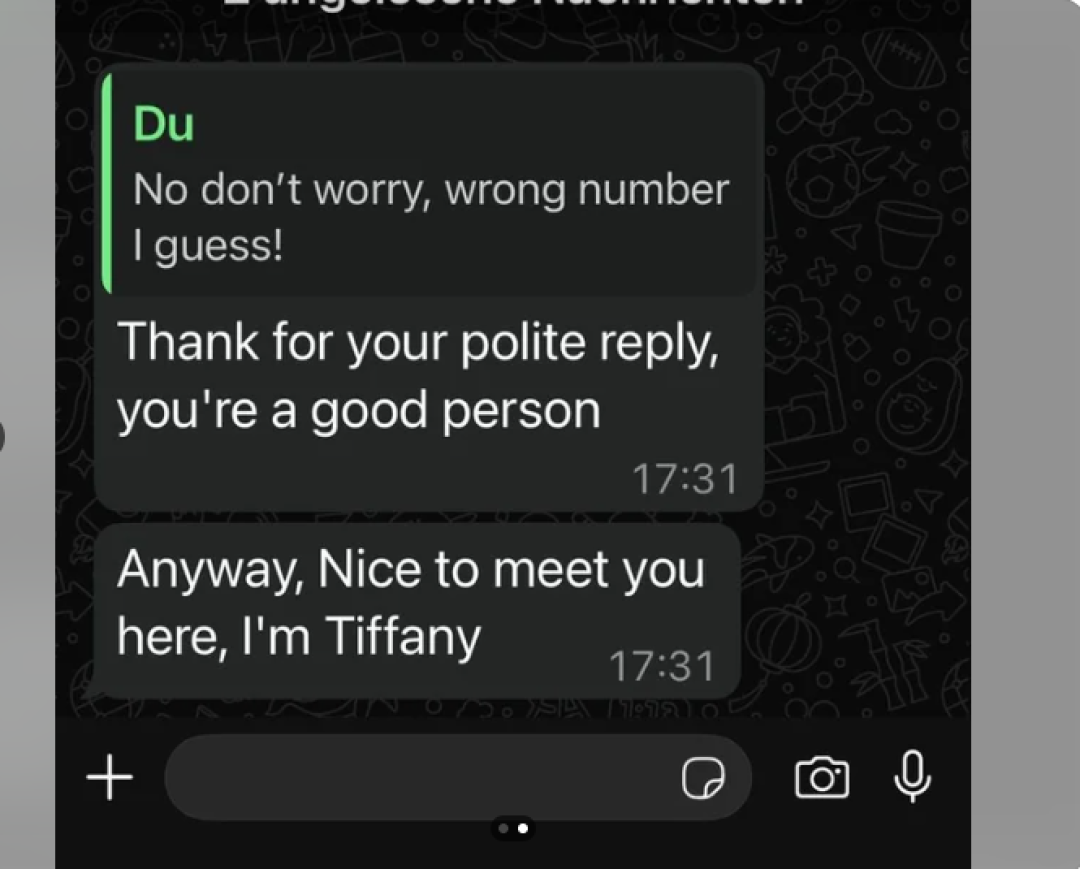
Source: Reddit
Here is how it plays out:
Unknown number: Excuse me, are you a tour guide in Germany?
Me: Hey sorry. Not a tour guide. Good luck searching!
Unknown number: Oh really! I'm sorry for my mistake. I hope you don't mind me.
Me: No don't worry, wrong number I guess.
Unknown number: Thank you for your polite reply, you're a good person. Anyway nice to meet you here, I'm Tiffany.
Looks harmless, right? But “Tiffany” will eventually steer the conversation toward investments, love, or quick-money opportunities.
Facebook Messenger is full of “family” reaching out. Except, it’s not really family.
How it Started

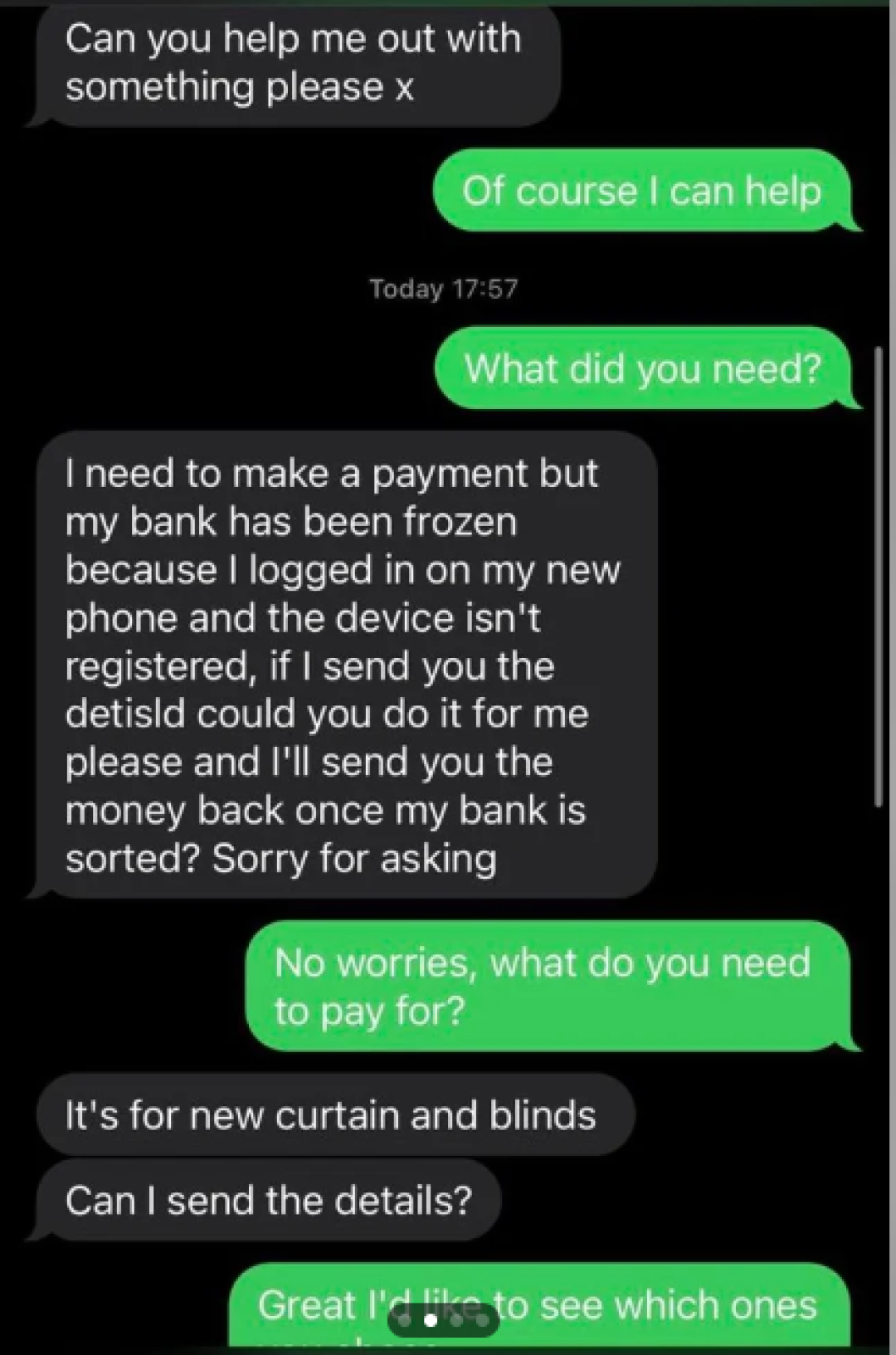
Source: Reddit
The scam: You get a message from “your child” saying they’ve changed their phone number. Minutes later, they claim they’re in trouble and need money urgently. Love and panic make you act fast — exactly what scammers are counting on.
This one’s sneaky. You get a DM from a friend saying they accidentally sent you a security code and need you to send it back.
Here’s the twist: that “friend” is actually a hacker who’s taken over someone’s account. If you give them the code, you’re basically handing over your own Instagram keys.
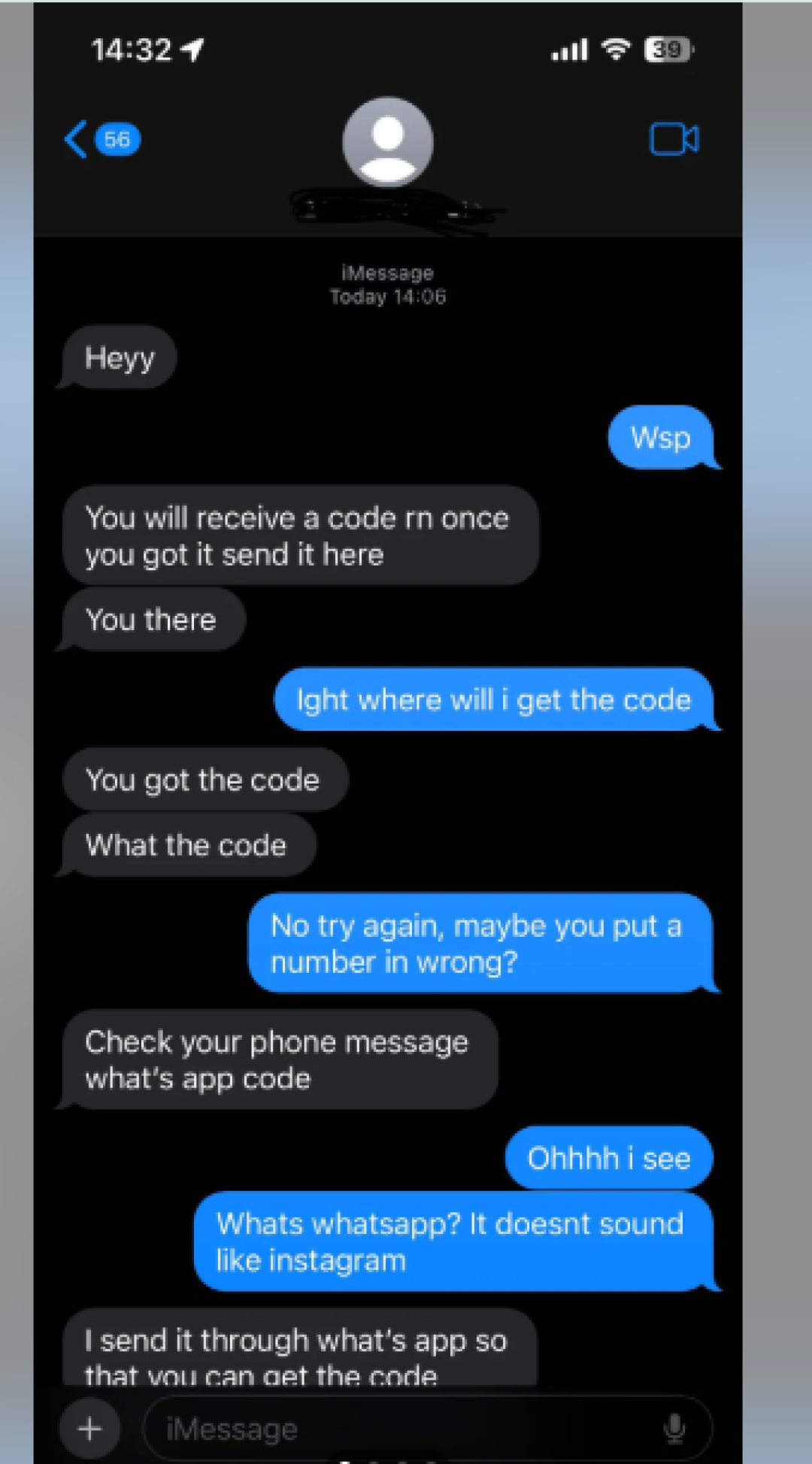
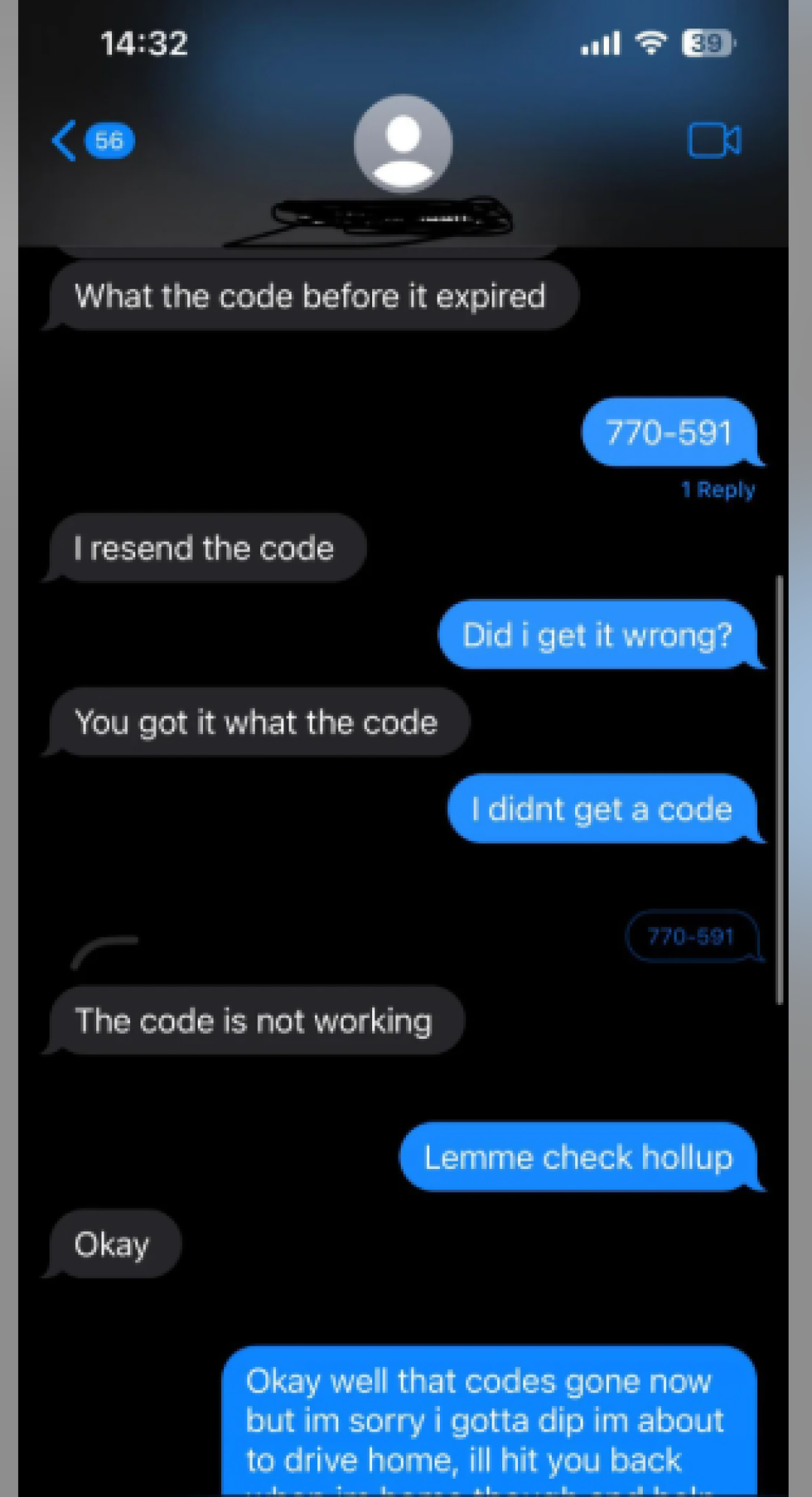
Source: Reddit
The best way to fight scams is to be two steps ahead.
Scammers don’t just want your money — they want your trust, your data, and your attention. The more time you spend on social media, the more you need to watch your digital back.
If something feels off, it probably is. Think twice before you click, share, or reply. And if you’re not sure, let the ScamAdviser App be your pocket-sized scam detector.
After all, in the wild west of social media, caution isn’t paranoia — it’s survival.